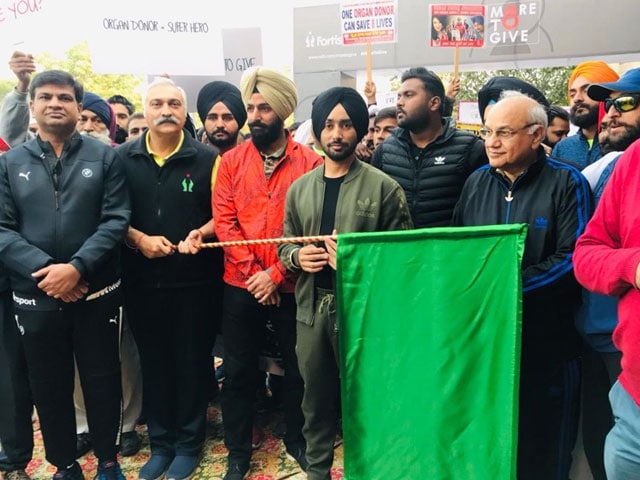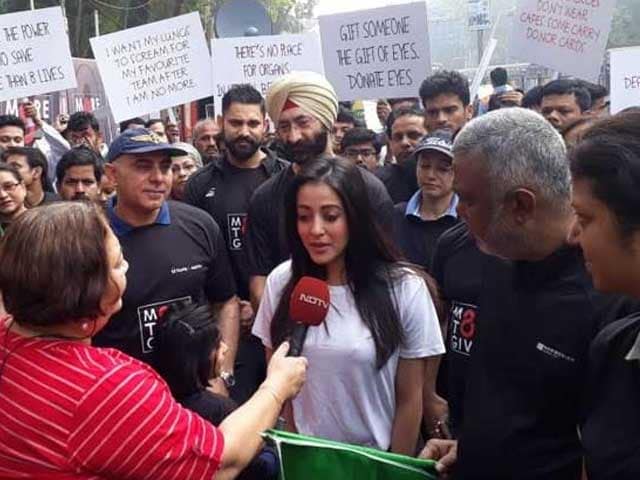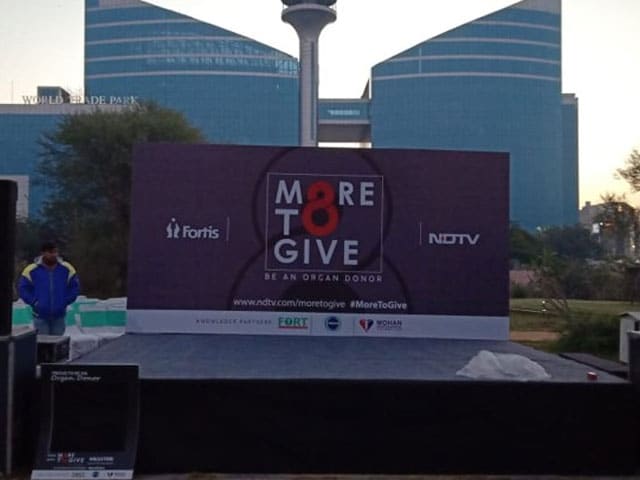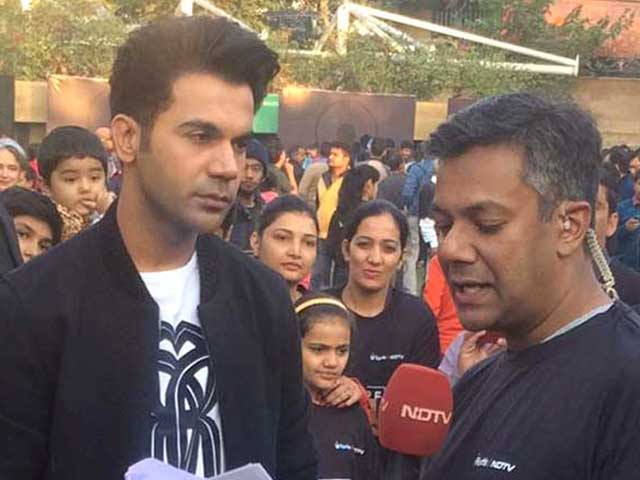New Delhi: It all started in 2009, when Kartikey Sharma, then a high school student in Mumbai, was first diagnosed with Hodgkin’s Lymphoma (Stage II), cancer of part of the immune system called the lymphatic system. At that time, for about ten months, while he was preparing for his Higher Secondary exams, he was also undergoing Chemotherapy. The treatment had been successful, the cancer was gone. He even managed to score over 90 per cent in his 12th Board Exam and started pursuing engineering in Pune. However, in college, he decided that he does not want to be an engineer but a graffiti artist. All was well, now a 23 year-old Kartikey started his new journey as an artist, he founded Pune based art start-up called Jumbish. Just as things were falling in place, his cancer resurfaced and this time it was diagnosed at the fourth stage in February 2016.
Putting his career on halt, he moved back to Mumbai to start his chemotherapy. 12 rounds of aggressive chemotherapy later, doctors were not pleased with the result and recommended him to go through Hematopoietic Stem Cell transplantation, commonly known as bone marrow transplant.
A person requires a bone marrow transplant when their blood is not healthy enough to support them or to fight an underlying disease.
After a series of failed chemotherapies for one whole year, where we tried everything in the book to get the cancer under control, but the cancer cells kept growing uncontrollably and the traditional treatment did not work. Seeing this, we were forced to go for bone marrow transplant, Kartikey’s doctor, Dr. Avinash Bonda of Tata Memorial Hospital, told NDTV.

Kartikey’s transformation over the last 3 years
Also Read: India’s First Skull Transplant Saves Life Of A 4-Year-Old Girl In Pune
For any person who needs a bone marrow transplant, the first step is to conduct tests on family members to determine if there is a match for the patient.
In my family, my parents were 50 per cent match each and my sister happened to be a zero per cent match. Since we were running out of time, the doctors decided to go with my mother as the donor despite it being only a 50 per cent match, said Kartikey.
This was slightly risky as there was a higher chance of his body not accepting his mother’s bone marrow. However, even though it took a while, the body did accept the bone marrow.
This is a common practice as getting a desired bone marrow donor is not easy and I didn’t have the privilege of time, Kartikey told NDTV.
His mother, Sunita Sharma, told NDTV that the donation process was a simple one and similar to donating blood.
I had a syringe in my arm and they pumped my blood out to transfer it to my son. It was similar to donating blood and while I felt a little uneasy and weak after the donation, it was nothing compared to the satisfaction I got. After feeling helpless for months, I felt like I may actually be able to save my son’s life. I was absolutely fine within a week, Mrs. Sharma said.
Talking about the procedure of the transplant, Kartikey elaborated on the pre-transplant procedure.
First is the pre-transplant chemotherapy which is the strongest possible chemotherapy to suppress the blood counts to get them as close to zero, which takes about 10 days.
Also Read: Bone Marrow Donation Is Neither Complicated Nor Does It Require Surgery, Say Experts
Then for the transplant procedure, I was taken to a room, which is a special ICU, where I lived for the next 30 days. Here they injected the new bone marrow and conducted other treatment-related procedures. He said
Kartikey said that the chances of catching an infection at this stage are very high and consequences can be fatal as this was the most delicate time of the procedure.
Completing this is the second checkpoint. I stayed there for 34 days, he added
Then for approximately 300 days, he lived in the hospital room, under observation, for the continued treatment and recovery.
I was given various drugs to build the blood counts and learn to live all over again. I had to stay away from any and every infection as it could be fatal.
Finally, after ten long months of recovery, he was allowed to go back home. This was the third checkpoint.
The next checkpoint is when you complete one year. It is considered to be a successful transplant once you cross one year mark and from here we monitor the blood counts twice a week and give the patient “maintenance” drugs. He is still under observation as he has his routine check-ups twice a week Dr. Bonda added.
Also Read: Organ Donation: Four People Begin Their Second Innings, Thanks To A 65-Year-Old Brain Dead Man
It’s been one year and 10 months since the transplant and I’m being given vaccinations like polio and hepatitis, Kartikey said.
Talking about the costing of the Bone Marrow Transplant, Kartikey told NDTV that the cost, just like any other procedure, the cost depends upon the hospital.
The cost of the transplant was ₹26 lakhs plus the medication cost roughly Rs. 7 lakhs, he added.
When asked about his experience with finding a suitable donor he says that attaining a bone marrow in India is pretty difficult.
“The number of registered donors are very limited and organisations getting donors to register are also very less. In such a scenario patients look for donors within family also because there is a high chance of getting a match there. In case one doesn’t find a match in the family then getting a donor is a tedious and time consuming job.” Mr. Sharma said.
NDTV – Fortis More To Give campaign aims to promote organ donation and encourage Indians to take the pledge to be an organ donor. India has among the lowest rates of organ donation in the world at 0.5 donor per million population, which is far less compared to over 30 donors per million in some western countries. On an average, five lakh Indians die every year unable to get an organ transplant in time due to the shortage of organs. Every year on National Organ Donation Day on November 27, a Walkathon is organised across different cities of India to raise awareness, bust myths about organ donation and encourage people to become organ donors. Over the years, the campaign has gathered support from celebrities like actor Irrfan Khan, Swara Bhasker, Gul Panag and Former Indian Hockey Captain Sandeep Singh.
Disclaimer: Any medical information published on the website is intended for use as information or for educational purposes and should not be considered as medical advice or in any way an endorsement for an individual to make organ donations. Interested donors must seek appropriate professional medical advice in relation to the process, legal formalities and health risks involved with respect to organ donation and form their independent decision.











Like Kartikey I was also a Acute lymphoblastic leukaemia patient. After two months of chemo I was suffered a stroke due to side effects .Since I had a condition called Philadelphia positive. I had to undergo stem cell transplant. But same as Kartikey I didn’t get donors in my family. Hence my husband took me to Singapore. I underwent a double cord blood transplant.recovery was similar to Kartikey. My left side is still paralysed. I just wanted to spread awareness about cord blood transplant. Treatment is expensive. But still gives hope to many patients like me.